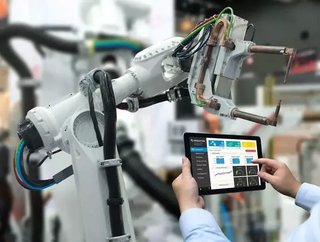How can the process industry implement Industry 4.0?

While manufacturing makes strides toward Industry 4.0, the process industry still lags. But the latest technological revolution can make tasks in the process industry more efficient. The heart of this revolution is data, which also lies at the core of the process industry. Rather than fearing the latest advances, companies should embrace them.
What is Industry 4.0?
Industry 4.0 uses technology to connect parts of the process that once relied on human communications, enabling adopters to collect, analyze and use data instantly. This industrial revolution also encompasses automation and mixed reality. For example, Canadian companies invested an average of $250,000 to digitize a small to medium manufacturing facility. This amount should be similar for process industries.
The automation could reduce the amount of downtime from broken machinery. Industry 4.0 technology predicts when equipment requires maintenance before it breaks down. Additionally, it's more flexible to change product production quickly, which is especially helpful in today's process industry. Personalized medicine and foods reduce overall volumes of production, while increasing the number of products a company can churn out.
Big data makes big businesses
Data bridges the gap between information and operations. Industry 4.0 takes this information and uses it to streamline physical processes. Networking in the chemical industry could result in a 30 percent increase in production by 2025. The data links research, production and customers in a vast, interconnected network that relays vital information in seconds.
To use big data, you need to collect it. A single sensor measuring the performance of a machine can take up to one trillion samples annually. A human would never be able to analyze this amount of data. Software to measure and categorize the information can automate processes, reducing human effort and increasing efficiency. In the chemical, food and pharmaceutical industries, mistakes could lead to death. Anything to reduce errors is a boon.
Linking employees with data
Though automation is a component of Industry 4.0, the process industry still requires humans. Employees use gathered data to make decisions on maintenance. Also, human workers’ experience with the equipment generates the algorithms the software and sensors use to schedule maintenance and repairs before unplanned outages. Employees can access information virtually about equipment by a database of “digital twins,” a term coined by Dr. Nico Zobel, a researcher with Fraunhofer IFF.
Employees can also safely learn to operate new equipment or learn new skills through virtual reality. Virtual reality also allows plants to verify operations before they open. BASF and Sinopec Engineering both used virtual 3D software to create an image of the plant operators could see before construction finished, which allowed them to make changes before installing any equipment.
Connecting the facility to the supply chain
Manual ordering of replacement parts for equipment wastes time. Industry 4.0 facilities have equipment sensors that send a signal when a component wears out. An inventory computer checks availability of the part and orders a replacement, if necessary. Facilities can do the same thing with raw materials and other supplies. With a well-stocked facility, operations can continue at their peak.
Shipping goods in specific conditions is critical for many process industry businesses. For instance, chemicals may require specific humidity and temperature levels during transport for safety and maintaining potency. Thanks to monitors and GPS in transport vehicles, it's possible to track products constantly after they leave the facility. That ensures top quality of products even during transit.
Benefits of Industry 4.0 to the process industry
Incorporating Industry 4.0 into the process industry requires an upfront investment, but the benefits over time will outweigh that. Fewer unexpected stoppages increases productivity. The big data of Industry 4.0 better informs the process industry of which products consumers immediately demand, and through automation, changing production at a moment's notice is simple.
Implementing Industry 4.0 into the process industry
When it comes to adding the necessary components of Industry 4.0, you will need both software and hardware upgrades. Sensors and software work in tandem to maximize productivity. Even if you're not ready to fully embrace everything Industry 4.0 has to offer, start off by updating your technology. You'll step into the future of the process industry gently, rather than diving headfirst into the deep end.
As the process industry experiences more demands from other businesses and customers, facilities will soon have no choice but to get on board. Don't leave your plant in the past.






